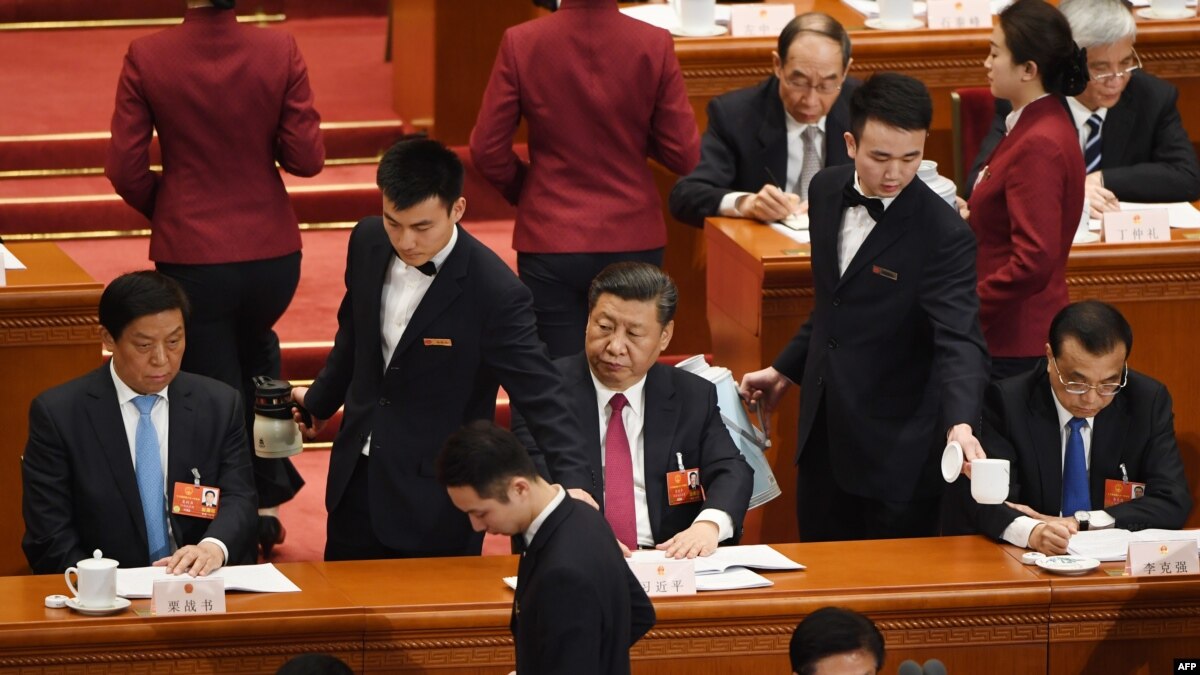
Top Chinese leaders have been forced to undergo a self-criticism session, state media said Thursday, in a further sign of President Xi Jinping's efforts to enforce party loyalty amid signs of internal dissent over his handling of a trade war with the United States.
A tool highly favored by Mao Zedong and taken to extremes during the Cultural Revolution, self-criticism sessions are back in favor under Xi's presidency as he seeks to consolidate power and tighten discipline in the upper party echelons.
Members of the Politburo "were asked to conduct criticism and self-criticism in light of work experience," at a meeting held on Tuesday and Wednesday, state news agency Xinhua reported.
They were also questioned on "how they have taken the lead to implement Xi's instructions and key Party regulations and policies," it added.
The center of power in China lies with the 25-member Politburo, though its role has lessened since Xi got the top job in 2012 and started concentrating powers in his own hands.
Analysts however say the president's authority has been contested over the last few months due to an economic slowdown triggered by an ongoing trade war with the US.
Xinhua's report of the meeting does not say what self-criticisms the members of the Politburo were expected to make.
Self-criticisms were regularly carried out during the Cultural Revolution -- a period of intense social and political upheaval launched by Mao from 1966-76 -- and have returned under Xi.
Experts said top officials appear to have wavered from the political line imposed by the strongman president.
Willy Lam, a professor at the Chinese University of Hong Kong, described the meeting as "extraordinary" because the leadership is "admitting there is tension within its ranks".
"It means some of the Politburo members have done or said things contrary to Xi Jinping's interests," he added.
According to Xinhua, the leaders "were also urged to study the latest speeches given by Xi" as quickly as possible, and will have to "discipline themselves, their families and close aides at work".
Xi reportedly made a speech at the meeting, during which he lauded "democratic centralism" -- one of the founding principles of Leninism in which the top leadership is all-powerful -- and called for unity within the party.
Since he came to power, Xi has waged a campaign against corruption, punishing more than 1.5 million officials. Some observers however say the crackdown has targeted his internal opponents in particular.

No comments:
Post a Comment